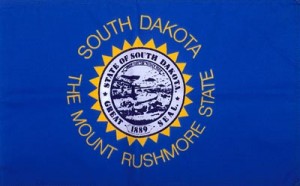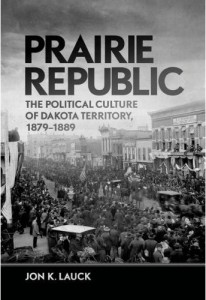 There’s an adage that everyone in South Dakota knows each other, and that when we go on vacation we turn the lights out in the state. This impression isn’t helped when there are a million “I bet we can get to a million fans faster than….” pages on Facebook and the South Dakota pages is, “I bet we can’t even get to a million fans.” I can tell you it is not true. If you are from South Dakota, you do not know everyone from South Dakota. It is true that if you are from South Dakota then you know someone I know.
There’s an adage that everyone in South Dakota knows each other, and that when we go on vacation we turn the lights out in the state. This impression isn’t helped when there are a million “I bet we can get to a million fans faster than….” pages on Facebook and the South Dakota pages is, “I bet we can’t even get to a million fans.” I can tell you it is not true. If you are from South Dakota, you do not know everyone from South Dakota. It is true that if you are from South Dakota then you know someone I know.
This was never more true than this week when I received an email from my friend Pat about an author friend of hers who is coming to Lincoln for a book signing. My friend Pat thought I “may enjoy meeting him and perhaps advertising this event on your website!” She was correct, at least about advertising the event on ToDoInThisTown.com. I haven’t met him yet, so I can’t say that I’ll enjoy it. I can say that I’ve talked to him. He’s written several books, three to be exact. When I spoke to him about one of my pet theories that delved deeply into one of his books, he liked my ideas. I think I will indeed enjoy meeting him. I look forward to it.
 Who is this author friend? His name is Jon Lauck. Upon doing a little Facebook “research” we have not one friend in common, but more than I care to count. Jon is a South Dakota native who writes about what he knows. As I see it, Jon know a few things. He comes from the farm and his first book “American Agriculture and the Problem of Monopoly.” was published by the University of Nebraska Press. Here is a review of the book, “This book is the best that has been written on its topic and . . . one of the best works on twentieth-century agricultural history.”-Business History Review, Harvard Business School (Business History Review)
Who is this author friend? His name is Jon Lauck. Upon doing a little Facebook “research” we have not one friend in common, but more than I care to count. Jon is a South Dakota native who writes about what he knows. As I see it, Jon know a few things. He comes from the farm and his first book “American Agriculture and the Problem of Monopoly.” was published by the University of Nebraska Press. Here is a review of the book, “This book is the best that has been written on its topic and . . . one of the best works on twentieth-century agricultural history.”-Business History Review, Harvard Business School (Business History Review)
It would seem he knows his stuff. Jon was a History Professor at SDSU. (No, not San Diego State, South Dakota State University, you know, they’re coming to Memorial Stadium Saturday September 25th to get their Jack Rabbit’s turned into Hobos and sent home.) So he knows history and he knows South Dakota. Mix all these issues together and Jon’s second book “Daschle v. Thune: Anatomy of a High Plains Senate Race” (Oklahoma, 2007) is published. Jon delves into the reasons why John Thune is able to unseat the most powerful man in the Senate. This is all well and good I am glad we understand farm economics better. I am glad we can figure out how a Conservative Republican can defeat a Powerful Democrat in a conservative state. Now that we’ve gotten through the mud and the muck, we can finally get down to business.
In his newest book Prairie Republic: The Political Culture of Dakota Territory, 1879-1889, Jon examines the dominant political and social forces at work in the territory in the decade that led up to statehood. It is during this time that the territory saw explosive population growth and it was the values that these settlers brought with them that gave the Dakota Territory it’s culture and values. Being the amateur interviewer I am, I asked what one of these qualities was. Jon said South Dakota has one of the highest levels of Social Capital in the Nation. He talked about the variety and number of civic institutions that existed G.A.R., lodges for Veterans of the Civil War, reading clubs, chataquas etc. This Social Capital is one of our territorial legacies. He then asked, “what is your web site?” and, “what do you do?” Well I said, I run a website that catalogs places to go and things to do around our community and then encourages people to get out and get involved. I think my Dakota (pronounced DakOHta) was showing. 